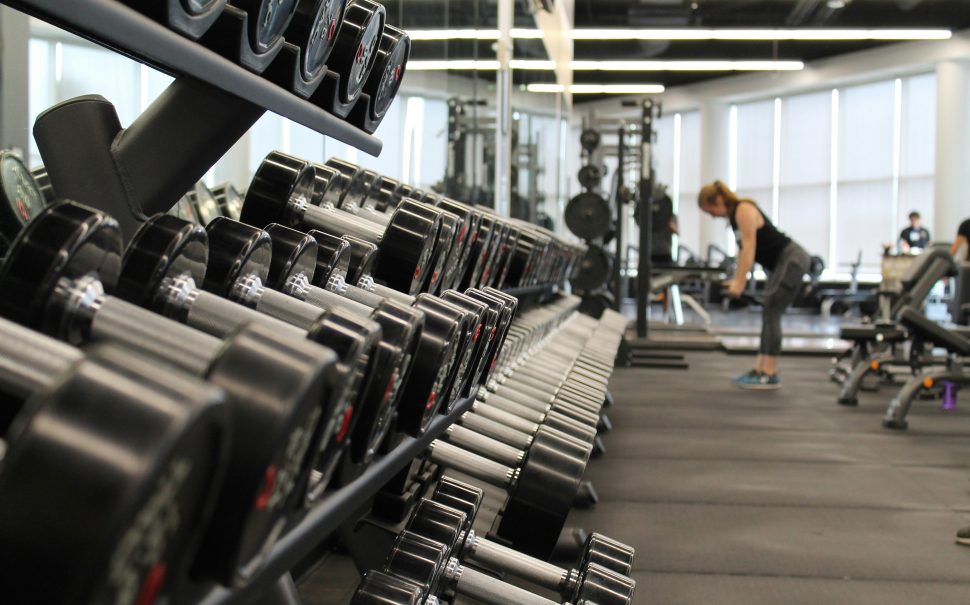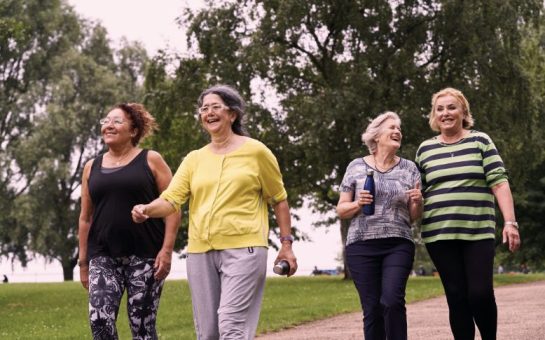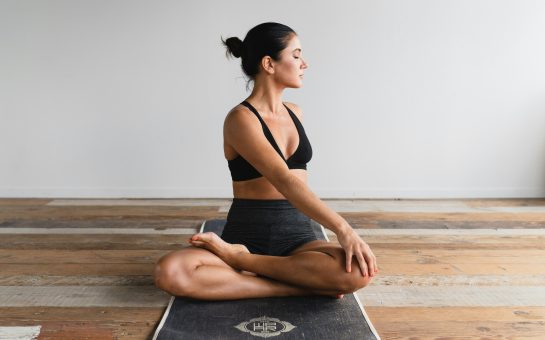The number of people intending to buy a gym membership during 2024 has gone down by 3% compared to last year, according to PureGym UK’s latest edition of its annual fitness report.
The report analyses gym trends and behaviours using data from YouGov, Google, independent surveys and its own internal member data.
Despite many people intending to becoming gym members, the reality is often very different with memberships growing by 17% less than planned during 2023.
Lorena Cueto, a personal trainer at PureGym Salford, said: “This is related to the cost of living.
“Everything has gone up, including houses and supermarket prices, and it is getting worse and worse.
“People have to decide if they want to struggle with money until the end of the month and go to the gym, or have a easier life, and people usually choose the easier path.”
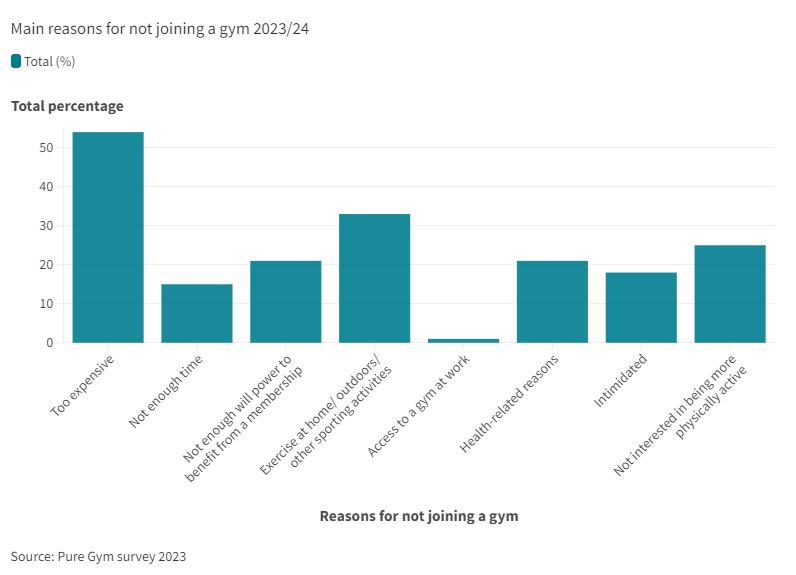
More than half of people (54%) said they would not join a gym this year because it is too expensive, which is 14% higher than last year.
Those aged 35 to 44 revealed they felt most affected by this cost, with 65% of this age group admitting the expense was the main reason preventing them from joining a gym.
This highlights how the pressures of the cost-of-living crisis are making the gym less accessible for many, and may explain why over a quarter of the population (33%) are opting to work out at home instead.
For younger age groups, both 16 to 24-year-olds and 25 to 34-year-olds, time is the main obstacle for not joining a gym, 35%, suggesting that for students and those beginning their careers, time is precious.
Adam Roberts, 20, a third-year student at the University of Manchester, has chosen not to purchase a gym membership this year due to the pressures of his degree.
“I prefer working out at home because it means I do not have to set aside as much time in my schedule.
“There is more flexibility to work out when I choose, rather than having to spend time getting ready and travelling to the gym and back.
“It also saves me money and I like having my own space.”
Meanwhile, Soroush Monshizadeh-Azar, 21, also a third-year student at the University of Manchester, is a frequent gym user who manages to fit in multiple work outs a week.
He said: “Personally, I do not think it is difficult to balance the gym alongside university.
“Most of my resistance training sessions last around an hour, and the same with my cardio sessions.
“The gym is simply a substitute for the one to two hours I would otherwise spend sleeping in during the mornings.”
Are people scared of the gym?
One in five people admit to experience ‘gymtimidation,’ a phenomenon leaving people too nervous to enter the gym floor or event too intimidated to use the whole gym.
This can be for a variety of reasons, including feeling self-conscious, not knowing how to use equipment properly and being surrounded by too many people during peak hours.
Women are more likely to experience gymtimidation than men, with 25% admitting they rarely or never go to the gym because of this, compared to 16% of men.
Abbey Scotland, gym manager at PureGym Manchester Salford Quay, said: “There’s a lot of influencers out there now promoting ‘strong women’ – which is great.
“Women are speaking up and sticking together to campaign.
“Men should follow this route to. They suffer with body dysmorphia just the same.”
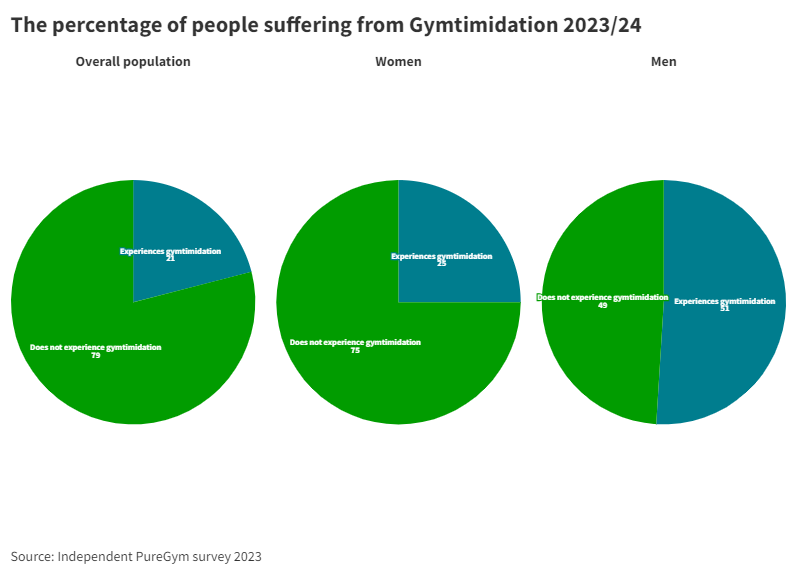
Work culture prevents many people from exercising.
Over half of the population (56%) believe their job prevents them from exercising and keeping fit.
This suggests that balancing the gym alongside the modern-day demands of work, as well as socialising, completing household chores and childcare is difficult for many.
Two in five people (41%) admitted they felt too tired to exercise after work, while a third (34%) revealed they could not make time for the gym in their work schedule.
The top industries that felt their job was preventing them from exercising were hair and beauty (90%), HR (80%), and arts and culture (69%), which tend to be time consuming roles.
With working from home becoming increasingly popular, many of us are inactive and stationary at our desks for long periods of time, which can be damaging for our health.
Abbey said: “As a whole, work squeezes more time and energy out of us.
“However with the benefits of flexible working, people are more in control of their time.
“This is an added benefit as the gyms tend to be quitter around traditional office hours where you would find the gym busy at 5.30pm as customers can stagger throughout the day.”
The cost-of-living crisis combined with the pressures of modern day life make buying a membership less accessible for many. However, with 16% of people stating they intend to buy one in 2024, time will only tell.
